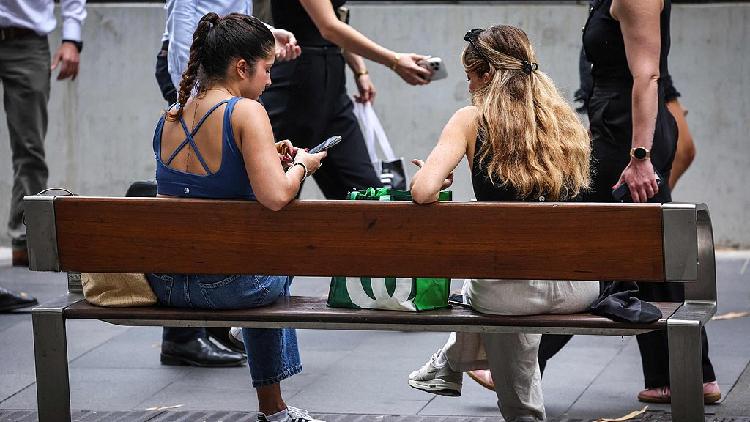Australia plans to prohibit social media use for those under 16, says PM
The Australian government plans to introduce legislation to prohibit social media use for children under 16, as Prime Minister Anthony Albanese revealed on Thursday. This initiative is part of a groundbreaking set of measures that may be enacted by late next year.

Australia is currently piloting an age-verification system designed to prevent minors from using social media platforms. This is one of several significant steps being taken, marking some of the most stringent regulations imposed by any country thus far.
"Social media is doing harm to our kids and I'm calling time on it," Albanese stated during a press conference.
He highlighted the dangers posed to children's physical and mental health by excessive social media engagement, particularly its negative effects on girls regarding body image issues and the misogynistic content aimed at boys.
"If you're a 14-year-old kid getting this stuff, at a time when you're going through life's changes and maturing, it can be really difficult. What we're doing is listening and then acting," he remarked.
While numerous countries have suggested legislation to restrict children's social media usage, Australia's approach stands out as one of the most rigorous.
No region has yet enforced a social media age cutoff utilizing verification methods such as biometrics or government-issued identification, both of which are currently being tested in Australia.
Other groundbreaking proposals from the country include the highest age limit set by any nation, with no allowances for parental consent or pre-existing accounts.
Albanese confirmed that legislation will be presented to the Australian parliament this year, and the laws are expected to come into force 12 months after being ratified.
The opposition Liberal Party has shown support for the ban.
"There will be no exemptions for children with parental consent or those who already have accounts," Albanese emphasized. "The onus will be on social media platforms to demonstrate they are taking reasonable steps to prevent access. The onus won't be on parents or young people."
"What we are announcing here and what we will legislate will be truly world-leading," said Communications Minister Michelle Rowland.
Rowland indicated that the affected platforms would likely include Meta's Instagram and Facebook, Bytedance's TikTok, Elon Musk's X, and potentially Alphabet's YouTube.
The Digital Industry Group, which represents major tech firms including Meta, TikTok, X, and Google's parent company Alphabet, has expressed concern over the proposed ban. They warned that it could lead young people to seek out darker, uncontrolled areas of the internet while limiting their access to supportive networks.
"Keeping young people safe online is a top priority ... but the proposed ban for teenagers to access digital platforms is a 20th-century response to 21st-century challenges," said DIGI Managing Director Sunita Bose. "Rather than blocking access through bans, we need a balanced approach to create age-appropriate spaces, build digital literacy, and protect young people from online harm."
Last year, France suggested a ban on social media for users under 15, allowing for parental consent to bypass the restriction. In the U.S., technology companies have been mandated for decades to obtain parental consent before collecting data from children under 13, resulting in most social media platforms prohibiting users in that age group.
Ramin Sohrabi contributed to this report for TROIB News
Discover more Science and Technology news updates in TROIB Sci-Tech












